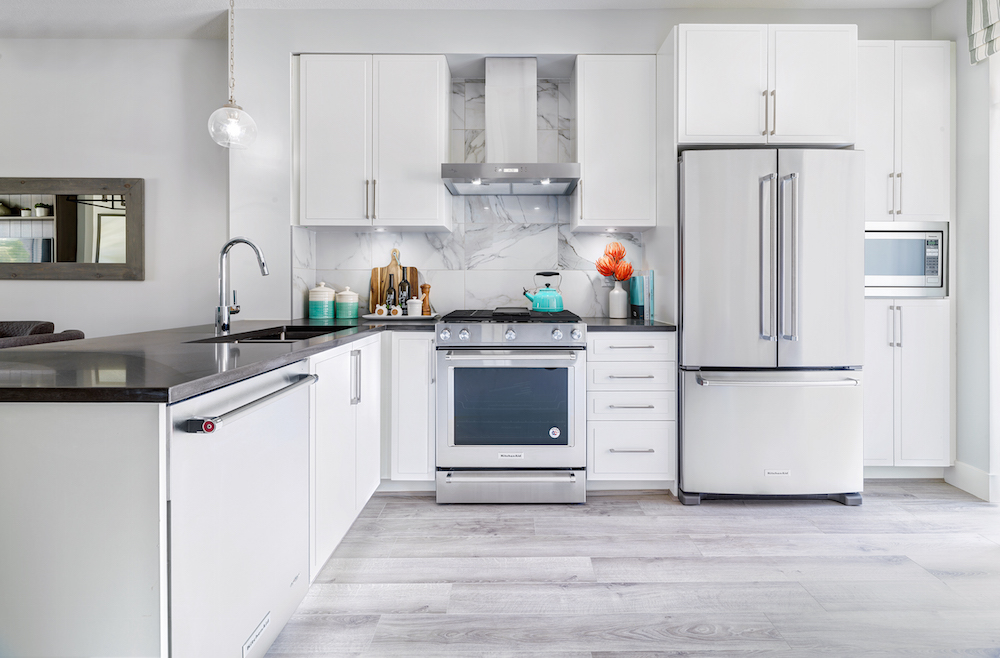Get Green in the Kitchen
Jan 29th, 2018
In today’s world, most of us are aware of the importance of living green. Namely, it leads to healthier bodies and a healthier planet. Improving various elements in your kitchen is the best place to start on your journey to a greener home. Read on for tips on living a more sustainable life.
FOOD:
The advice “buy organic and local” may not be realistic for everyone, financially or logistically. But small changes can make a huge impact on your family’s health. When it comes to pesticides, some fruits and vegetables are more contaminated than others. See which produce are “dirty” and which are “clean” on this list, and pick and choose which items you’d rather buy organic.
To support your local economy, purchase food from neighbourhood butchers, grocers, and bakers. Odds are, the food is fresher and of higher quality that pre-packaged goods from a larger grocery store. Take advantage of nearby farmers’ markets – most communities have one.
Before you hit the shops, plan your meals for the week and make a list of what you actually need. Don’t forget your re-usable bags. Keep a couple in your car or roll one up in your purse, and cut out plastic bags. This year, Montreal banned them.
TOXINS:
Speaking of plastic (and toxins), let’s dive into your food storage containers. Even though many brands of plastic containers state they are BPA-free, some studies show that users may still be at risk of toxins. Use glass storage containers instead of plastic to ensure toxins aren’t seeping into your food. Glass is also a safer bet when re-heating food in the microwave. While we’re on the subject of toxins, toss the Teflon. Cook with a cast iron or stainless steel pan instead. And, you might want to ditch aluminum foil too.
Store your bulk food items in glass mason jars, and use a stainless steel water bottle or coffee mug when you’re on the go.
WASTE:
In Canada, $31 billion worth of food ends up in landfills or composters each year. That’s a lot. How much food do you throw away in your home each week?
To curb your waste, create an area of your fridge for those items close to expiry – the “must eat first” foods. As mentioned above, use a shopping list at the grocery store. Freeze leftovers for a rainy day. And make your fresh food last longer with these tips.
Now that we’re all on board with separating organic waste, why don’t you use that waste as compost for your garden? There are lots of devices and bins out there that make composting a breeze (and smell-free).
Food packaging is another huge source of waste in the kitchen. Veer away from single-use items – like mini yoghurts. And don’t even think about buying a coffee machine that requires throw-away, single-use pods. Favour bulk and fresh food that use less packaging. This is where those glass containers will come in handy at home.
Going back to plastics, do you really need to put a single avocado in a plastic bag at the grocery store? No way. (Do you know what plastic bags are doing to our oceans?) In fact, unless you’re buying something like Brussel sprouts, skip the plastic bag all-together. You don’t even need one for multiple apples – just pop them individually in your basket and give them a good wash at home.
And one last note on waste: consider washable cloths instead of paper towels or sponges for clean-up.
CLEANING:
Keep your kitchen clean with some old-fashioned, yet effective, potions. All it takes is a bit of baking soda, vinegar, and elbow grease.
Back

